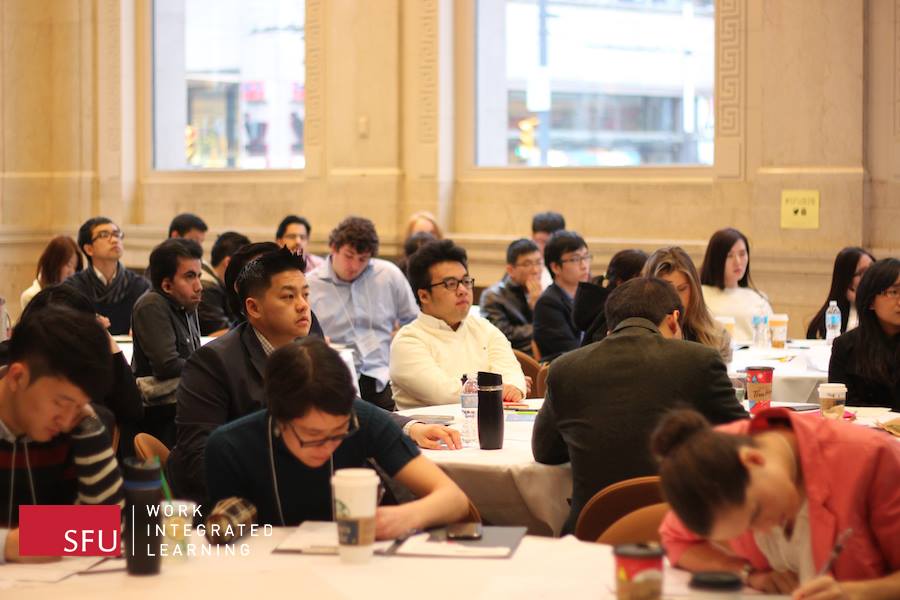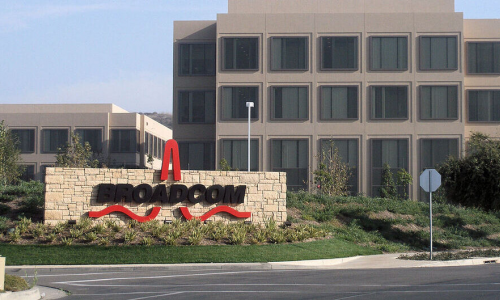
Backpack to Briefcase conference is an annual event held my SFU career services and SFU alumni association, where SFU alumni return to share some advice to soon-to-be or recent graduates. This year our six speakers gave a wide range of advice from how to find a job to social media in the workplace in a fun, interactive day. Here are some of the big ideas that came out throughout the day.
Know yourself
While job searching, self-awareness is huge. As a part of becoming more self-aware, it might be beneficial to ask yourself: What is your purpose in life? It’s a pretty deep question and not an easy one to answer, but creating a vision for your future will help give meaning and direction to your goals. Try to find what resonates with you, and remember to consider not only financial value when job searching or even once you have found a job. A sense of community, social values, and physical well-being also need to be considered for a successful career. Though it might be difficult to remember sometimes, ultimately it’s not about your degree; it’s how you use your degree. Finally, know that even many of the most successful people consider themselves “a work in progress.”
Employers usually look more for your soft skills than your hard skills, such as your communication, adaptability, and how you work with others. One of the best things you can do is to highlight your soft skills. That really comes from getting to know yourself and figuring out what makes you unique. Brainstorm about it. Maybe ask your friends what they like most about you! Once you’ve figured out the skills that make you stand out, be able to have a story around it to prove your skill. That way when you are job searching, you can fill in the gaps of skills you might be missing by focusing and building on the exceptional skills that you do have. That being said, gaining more skills, such as through volunteering, can also help make your resume stand out.
Volunteer
While volunteering might not be something that seems immediately interesting to you, there are many benefits to volunteering that were outlined during B2B. The job market is tight, so volunteering can improve your resume by giving you more experience, and improving or gaining skills. Nearly any skill can be improved depending on your position, from communication, to working with computers, to event planning.
A volunteer position can be a time to find out what you like and what you don’t. It gets you a chance to practice applications and interviews, and you can learn from good and bad experiences. One great piece of advice given was to take any criticism seriously, but not personally, and use it to learn and grow. Most importantly perhaps, volunteering allows you to meet new people and gain connections. The importance of making a network for yourself was highlighted numerous times during the day.
Build a network
80% of jobs are in what is called “The Hidden Job Market”, and building a network can help you uncover them. So, what are some ways that you can start building a network? One of the obvious ones is with networking events or a job fair. This can be a great way to gather information, an invaluable tool when job searching, but make sure you use the information you gain. Don’t just store it, and be the person with a pile of business cards in their drawer—follow up to build a more meaningful relationship!
A good thing to have any time you might meet a person that you are interested in building a professional relationship with, is an elevator pitch. A good elevator pitch will be as short as possible while still getting the message across and targeting your audience. It should be focused yet engaged, and really highlight the part about what makes you unique (see the section on self-awareness!) But the key to having a well-delivered elevator pitch is simply to practice.

Another way to start meeting people and learning more about different areas or organizations would be through informational interviews. A piece of advice when setting up an informational interview is to email the person you would like to meet, and add that you will follow-up with them by phone in a few days if they haven’t answered. Be sure to do so of course, and they’ll likely be impressed. When you have an interview set up, make sure to do some research before you go, so you aren’t asking questions that you may have been able to find online. A good way to ask the right questions is to ask them their experience, or their career journey, and make it about them. Finally, after the meeting, be sure to follow-up with a thank you card.
Use social media
Social media can be an extremely useful tool when job searching. It can be a way to make connections, get an informational interview, or as a research tool to discover what companies you may want to work for. And it definitely can be used as a branding tool.
Keep in mind, caution is needed as well when using social media. Be careful what you post, as you can easily lose control of anything you post online. It is very highly recommended to use your privacy settings on Facebook. Once you have entered the workplace, keep the boundary between work and personal life; use Facebook for family and friends, and LinkedIn for professional relationships. Finally, get to know your rights online. For example, there is a policy around social media background checks in BC that states companies can’t do one without your consent, and you are not giving consent by simply applying for the job.
Closing
If you did not get the chance to attend the conference this year, I would highly recommend that you check it out next year. Not only does it provide some great tips as outlined above, but it can also be a great place to start networking. In the meantime, book an appointment with career services on any of the topics mentioned, or read some other OLC blogs for more ideas on life after graduation. Good luck!













